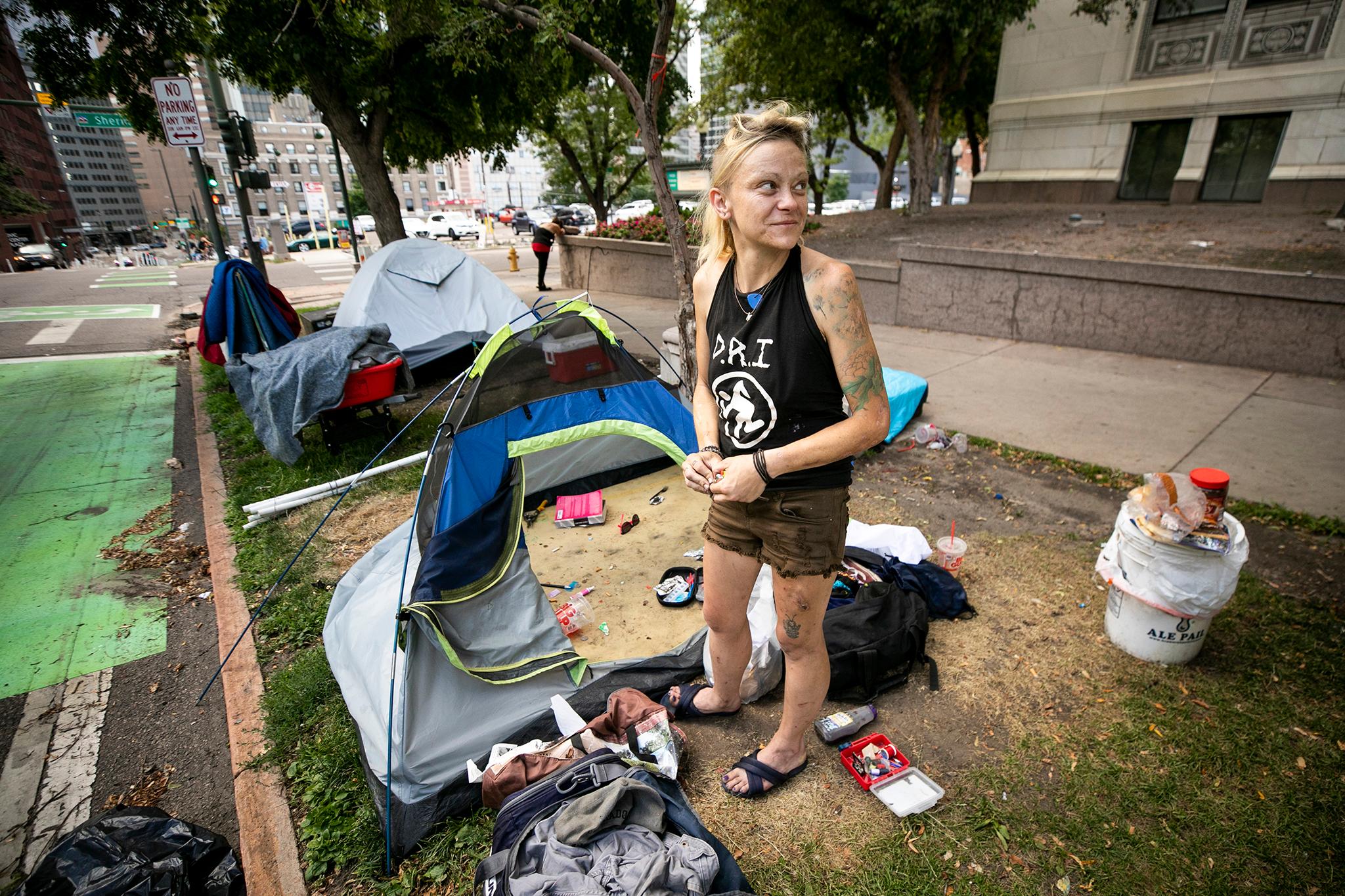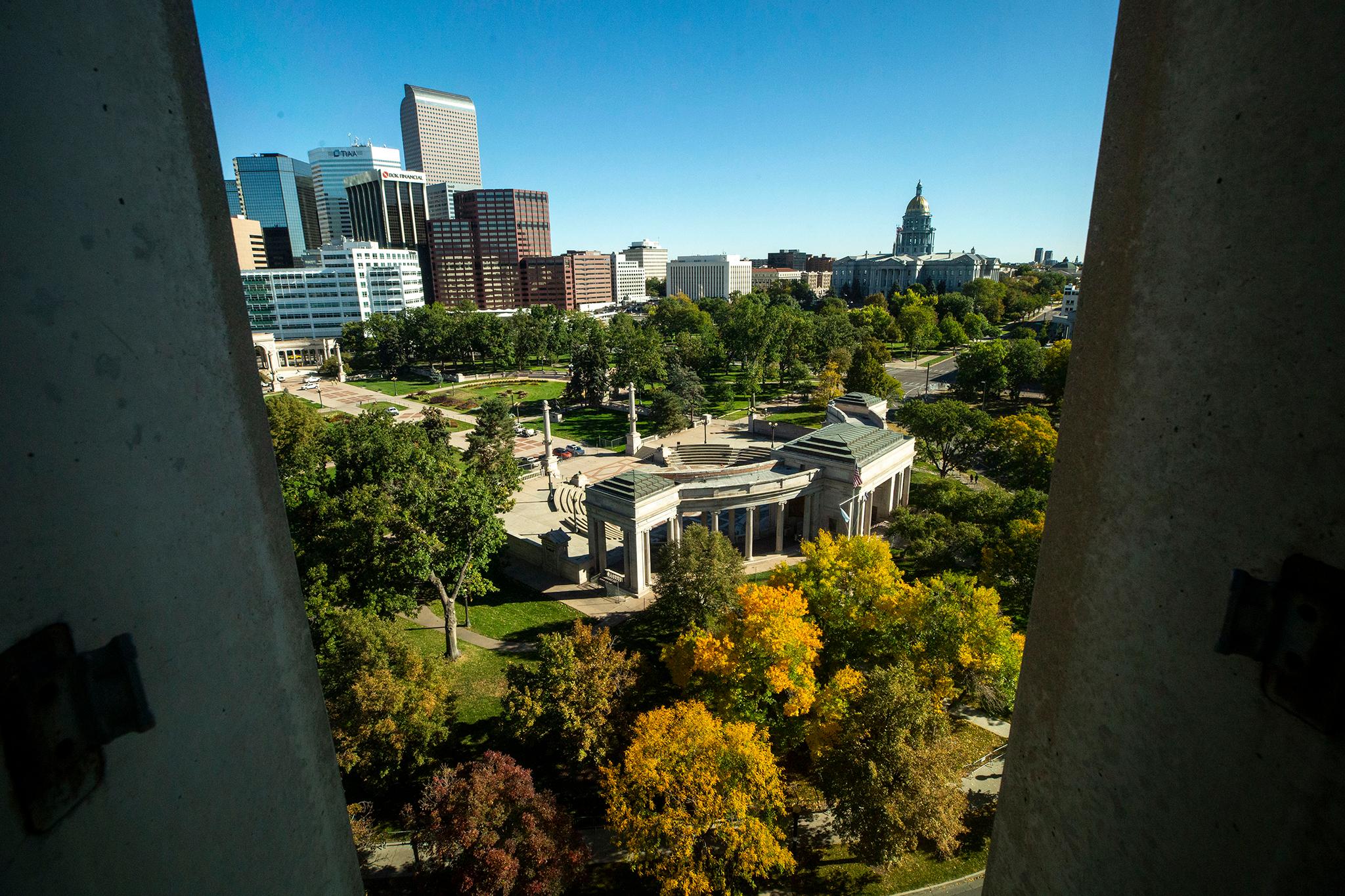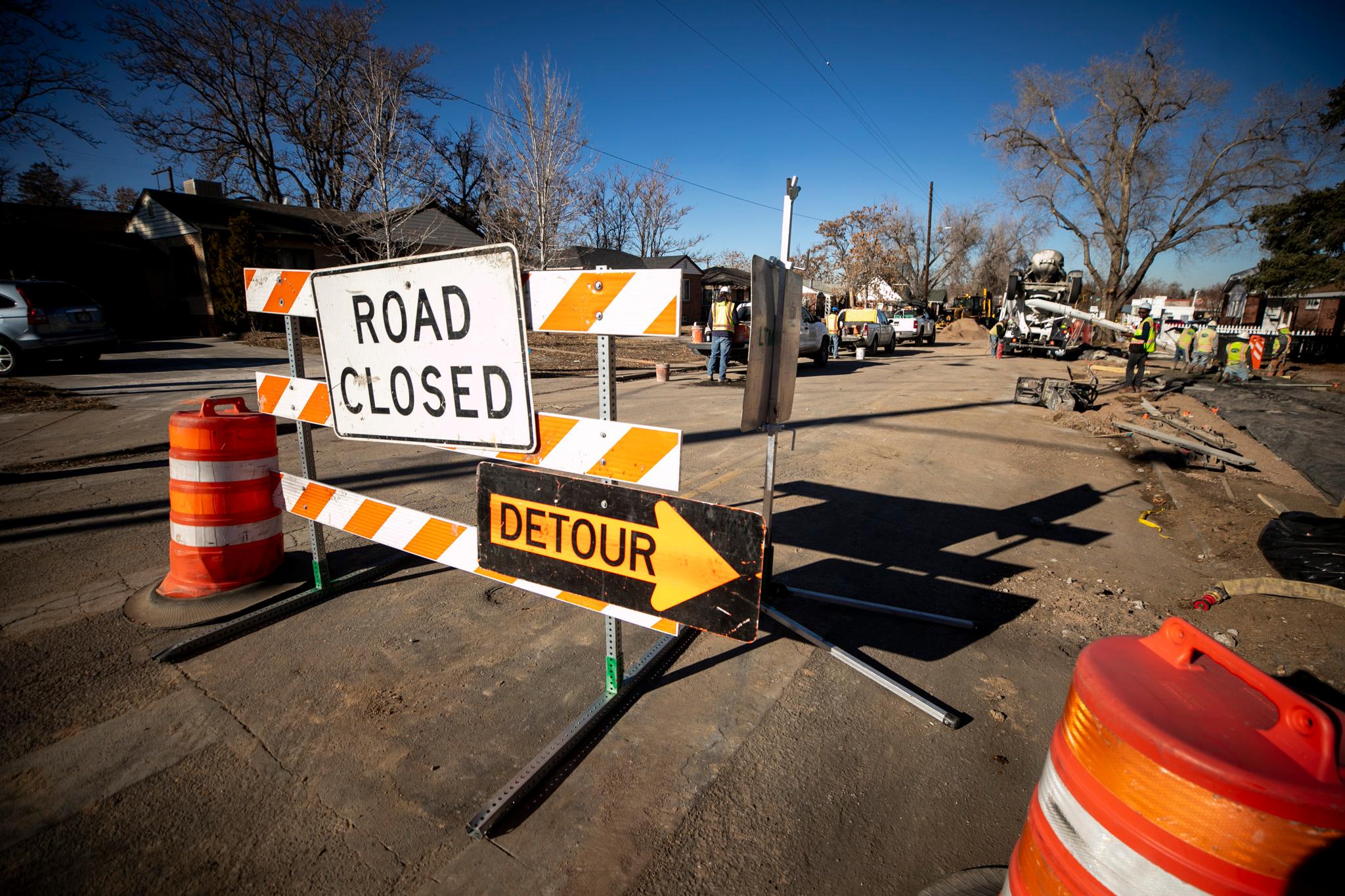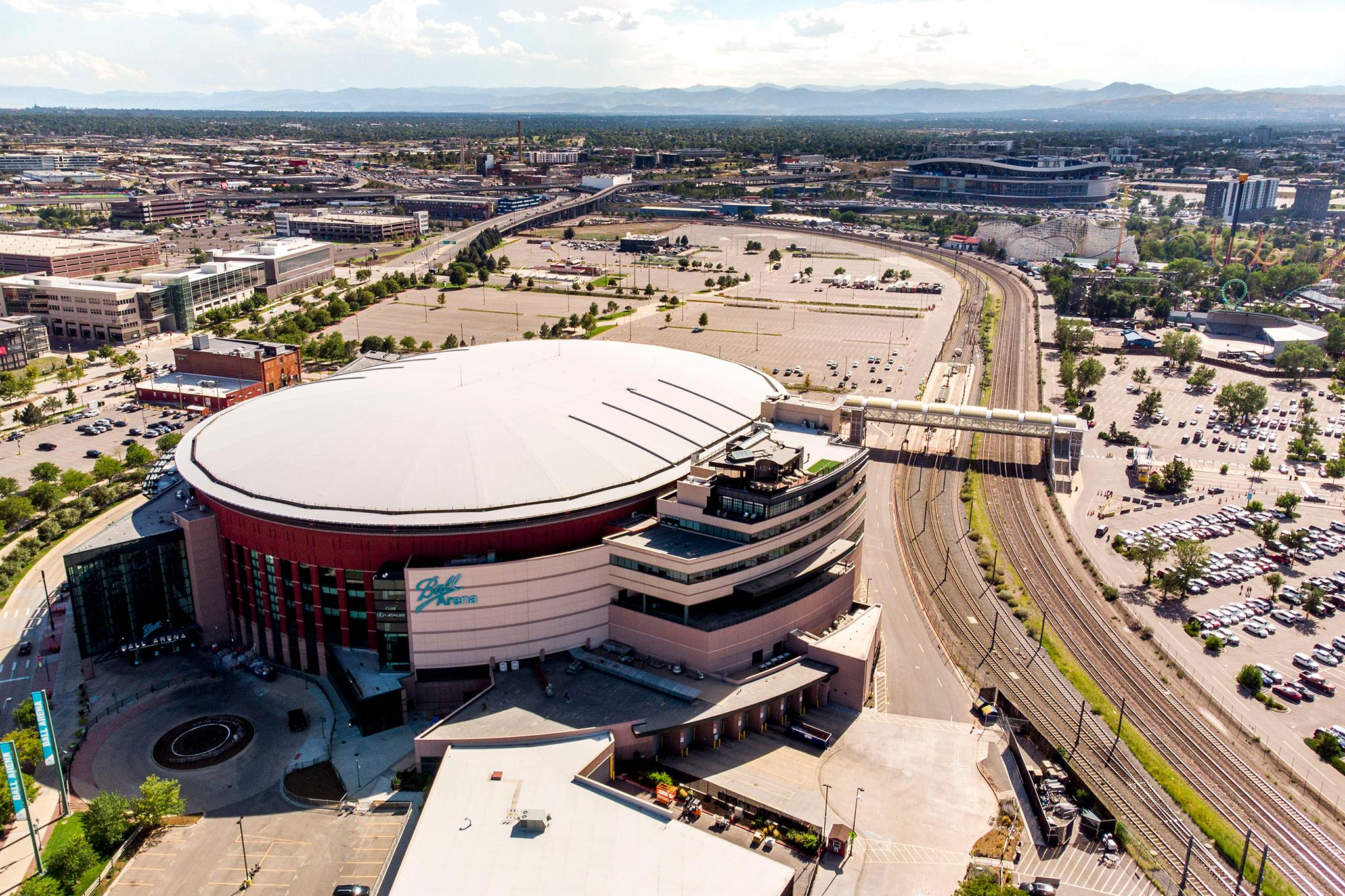Mayor Mike Johnston's administration has plucked some low-hanging fruit in its attempt to ease tensions around visible homelessness in Denver. For the first time, the city is offering trash pickup services for encampments on its sidewalks.
"In alignment with Mayor Johnston's vision to improve the health and safety for those living on the streets as well as nearby neighborhoods and businesses, the city started trash service at several encampments this week," a spokesperson for Denver's Joint Information Center, the communication apparatus activated by Johnston's emergency declaration over homelessness, wrote Denverite.
"Outreach teams connected with those in the camps to provide trash bags. Routine trash pickup will be conducted by [the Denver Department of Transportation and Infrastructure]. DOTI will replenish trash bags on pickup days, and other city teams will have bags with them if additional bags are requested while visiting the encampment. This process will be monitored and adjusted as needed."
It could be a step towards a new era in the city's relationship with unhoused residents, but advocates who have worked on these issues for years are still skeptical any real progress is underway.
Trash pickup is a small thing that could be a big deal for people who live outside and their housed neighbors.
Though the camp at 16th Avenue and Grant Street was the cleanest she has stayed at, a woman who goes by Badger said she's still caught hell from people in the neighborhood.
"There's still people that drive by and call us filthy bums, and scream, 'Clean this s*** up.' To them, it is trash, but to us it's an all-day process just to try to get rid of it," she told us. "Nobody wants to live in their own filth. It's not a choice. We had our own trash going, and we were all taking turns here, having to sneak it in other people's dumpsters and to haul it around, you know? It becomes an all-day chore."

About a week ago, she said, outreach workers told her the city would begin trash services at her camp. On Thursday it happened, giving her some hope that Denver's approach to people in her situation is softening. Even the color of the bags left by workers felt like a good sign.
"I love that even the trash bags are bright orange, that it draws attention to it," she said. "Yeah, nobody wants to live in their own trash. It's better for the community. It cuts the complaints about us down. It helps us with disease and just state of mind. When you're coming home to filth, it doesn't make you feel very good. It's hard to feel like a person."
Housekeys Action Network Denver (HAND), an advocacy group that researches grassroots solutions to homelessness, recently released survey results that showed people living outside in Denver have a strong preference for trash service in camps, specifically by providing dumpsters. Their report warned that people who sleep outside are already wary of city workers, given a history of difficult interactions with them, and pushed for a system that employs unhoused residents to manage their own areas.
HAND founder Terese Howard said she and her colleagues have been pushing a program like this for years, a request that only former council City Council member Candi CdeBaca heeded.
City Council President Jamie Torres confirmed CdeBaca led the charge on trash services. While some council members were open to the idea, it never made it into Denver's budget.
"It just didn't get enough votes to get through," she said. "I think the last administration thought it legitimized something that it was trying to delegitimize: encampments. And there are others of us on council that just thought, 'Yeah, but what else are you going to do? Just let them accumulate trash?'"
When Johnston began his term a few weeks ago, Torres said she and Council member Amanda Sandoval approached him with this unused idea.
"He was like, 'Well that makes sense. We'll just dedicate a truck to a route,'" she recalled.

Johnston made homelessness his signature issue, promising a humane and dedicated approach to solutions that move the needle. Some watching his progress aren't ready to back him.
The new mayor spent his first day on the job listening to anyone with an opinion on how to ease Denver's housing and homelessness crises. In addition to his emergency declaration, he vowed to house 1,000 people by the end of the year, and has already announced acquiring almost 200 units towards that goal.
In the meantime, advocates who have been present at Denver's many encampment sweeps told us they're waiting to see what happens. Johnston paused these forced cleanups when he took office, leading to a few weeks of unexpected calm, they told us. Still, the city is planning the first official sweep of Johnston's administration.
In a letter sent to "community partners" on Friday, Cole Chandler, founder of the Community Village Collaborative who is now advising Johnston his their homelessness measures, said it will happen on August 4th.
"We will be working to help keep encampments and neighborhoods healthy, safe, and clean through outreach and trash collection. However, in cases where the public right-of-way is blocked or where there are urgent health and life-safety risks, encampments will need to be addressed," he wrote. "During the next week, numerous City and community-based outreach teams will be dispatched to this area to conduct housing assessments, offer basic health services, provide storage, collect trash, and assist in helping people relocate. We kindly request your participation and assistance in this endeavor."
Howard, the founder of HAND, said the upcoming sweep shows that Johnston's direction on these issues is already complicated. Yes, he's making improvements, she said, but she worries people will still just end up displaced and unhoused.
"Improvement and doing what's right are two very different things. There's definitely improvements, but that doesn't take much, considering what we've been dealing with Hancock over the last 12 years," Howard said. "Staring at 7 a.m. versus 5 a.m. - great. Doing far less sweeps than before - great. Starting trash services at some encampment - great. But that doesn't ultimately mean doing what's needed."
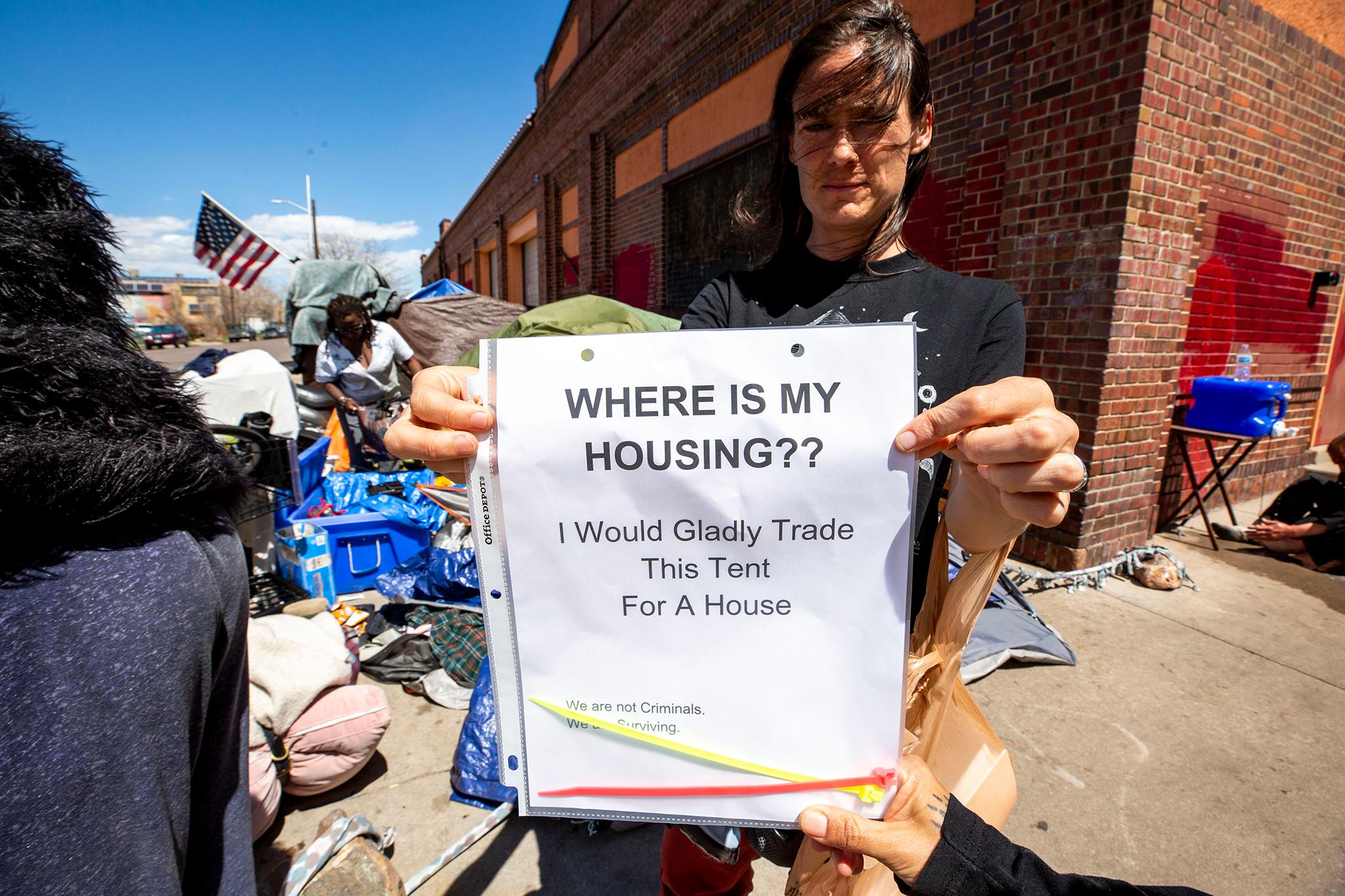
What's needed, she said, is letting people stay put until they can move into housing. She said Chandler's suggestion that "housing assessments" might help people before Friday is "delusional," and said Johnston's new trash program in a few "token" camps, for now, feels like an optics play.
Badger said she's not holding out too much hope, either, even though she's seen other positive omens this far into Johnston's first term.
"The last week, I've had like five people tell me that they got into housing, people who otherwise wouldn't have had a chance. They don't have kids, they're not veterans, but they're married couples, so they can't go to shelters. Or, they have a dog. It's those people that fall in those cracks," she said. "I personally won't be trying to do it, because it just seems like one more thing that could be taken away from me, you know? Since I graduated high school, going through college and stuff, I've seen like - what - three major financial crises? You know what I mean? Maybe I'm just afraid."
Correction: This article has been updated to reflect that Cole Chandler works just for the city now.

